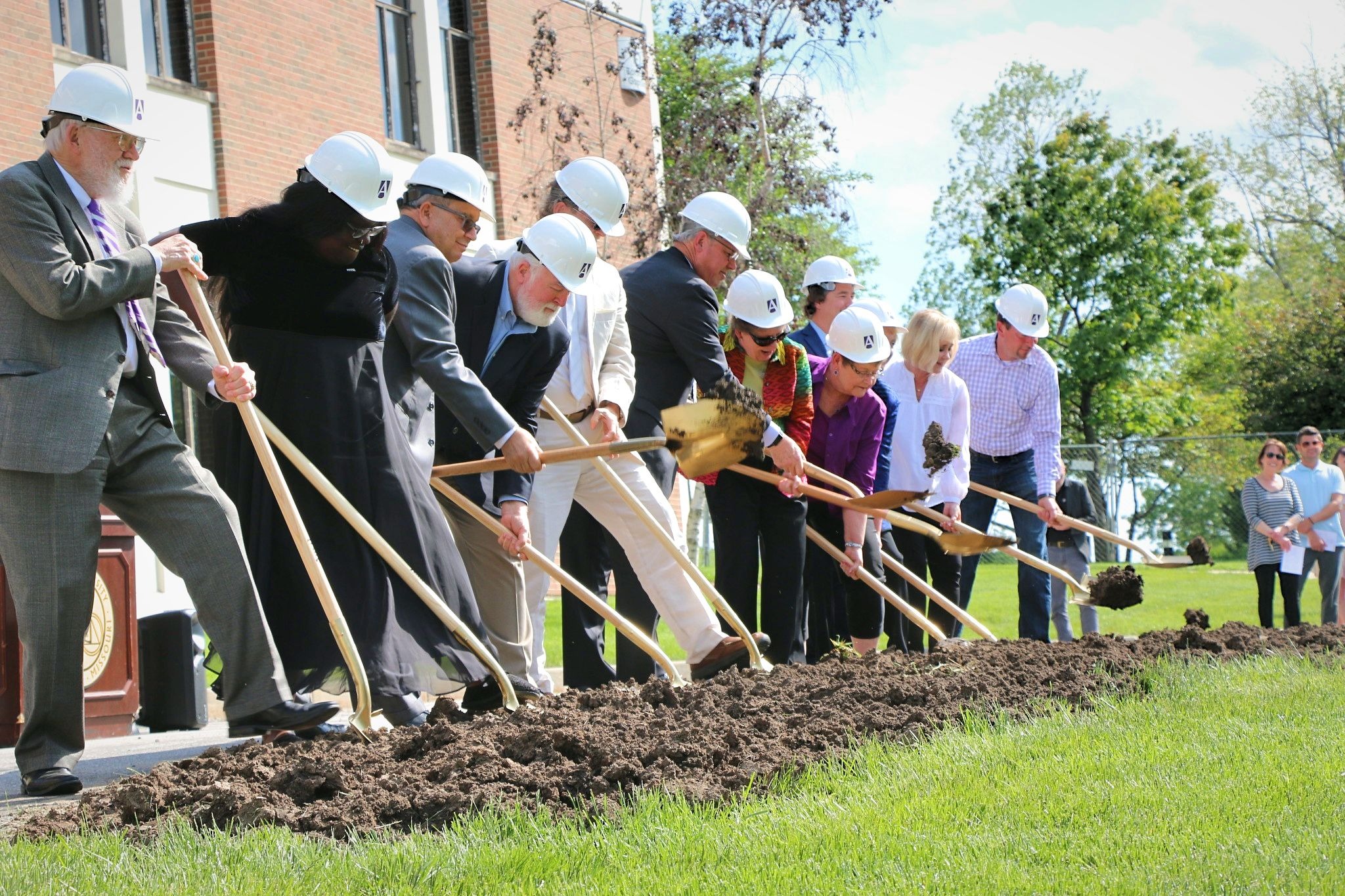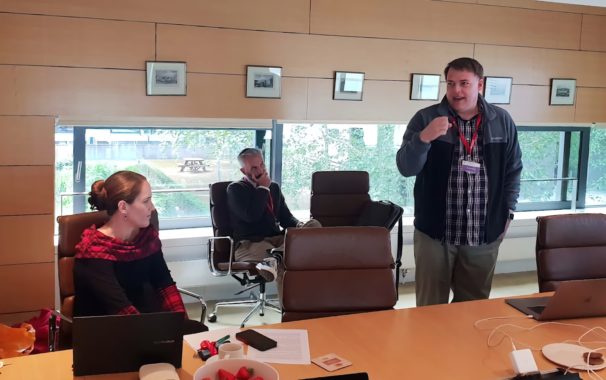Avila Associate Professor Kris Proctor, Ph.D., along with two colleagues (Richard E. Niemeyer – United States Air Force Academy and Kyle Trieber – Co-Director of the Centre for Analytic Criminology), visited with Cambridge scholars and presented research in-person and via Zoom on a panel to an international group of professors and criminology research scholars across the United States and Europe.
What was the process to be able to speak at this talk?
I was invited (with my collaborator, Richard E. Niemeyer) by the Centre for Analytic Criminology in the Institute of Criminology to give talks on my research on theory and mechanisms in criminology. Invited talks occur when an institution invites a scholar to their campus to present research findings. My colleague and I were the only ones invited, and we presented our research in an organized panel where the co-director of the Centre for Analytic Criminology gave a talk on how our work advances scientific criminological theory and complements the work of the Centre.
What were your contributions to this panel?
The panel had two papers that I contributed to writing:
“Are Most Published Criminological Research Findings Wrong? Taking Stock of Criminological Research using a Bayesian Simulation Approach”—Richard E. Niemeyer, K. Ryan Proctor, Joseph A. Schwartz, and Robert G. Niemeyer
This study uses Bayesian simulations to estimate the probability that published criminological research findings are wrong. According to our simulations, there is a very high probability that most published criminological research findings are false positives, and therefore wrong. Further, we demonstrate that the primary factor contributing to this problem is the poor quality of theory. We conclude with suggestions for improving the validity of criminological research claims.
“Defensible Theory Integration in Criminology: A New Mechanical Approach”— K. Ryan Proctor, Richard E. Niemeyer, Joseph A. Schwartz
Since the 1970s, criminologists have debated whether scientific theory in the field could best be advanced through theory integration or elaboration. This debate remains unresolved. This paper provides a systematic review of existing forms of integration, identifies their weaknesses, and proposes a new method of theory integration that draws from the new mechanical philosophy of science (e.g., Craver & Darden, 2013; Glennan, 2017; Glennan & Illari, 2017; Machamer et al.,2000). The proposed method of “mechanistic scaffolding” sees mechanisms as concrete phenomena in the world, the purpose of scientific theory being to represent the workings of these mechanisms, and interdisciplinary and interlevel understandings of mechanisms as crucial to advancing scientific theoretical progress in criminology.
How was the experience of speaking at Cambridge?
It was a very positive experience. The social sciences are currently undergoing a replication crisis, meaning prior findings cannot be reliably replicated. This calls all accepted knowledge in these fields into question. My work with Richard E. Niemeyer looks at how bad the problems are and how they can be partially addressed by improving the quality of scientific theory in these fields. Our colleagues at the Centre for Analytic Criminology are the only other criminologists in the world who adopt an approach similar to our own. The experience allowed us to better understand the similarities and differences in our work and identify how they complement one another.
What was your takeaway from attending the conference?
The main takeaway is that there are a significant number of criminologists that share our concerns over the quality of scientific research findings in criminology. Unfortunately, most criminologists see the replication crisis as being related to biases in how scientific articles are published or the questionable methodological practices in which many social scientists engage. There is, however, a growing number of criminologists—like myself, and those at Cambridge—who are correctly identifying theory as a significant problem as well. This makes me optimistic that scientific criminology is looking to improve its performance as a science, which will, ultimately, lead to better public policies related to crime.
Is there any piece of the experience that will affect your impact at Avila?
Yes, as a scholar at the forefront of criminological theory, I can provide Avila’s students access to someone doing cutting-edge research on the causes of crime. This allows my courses in criminology to be current on the understanding of the causes of crime. It also potentially provides research opportunities for undergraduate students that might want to pursue careers related to criminology.

